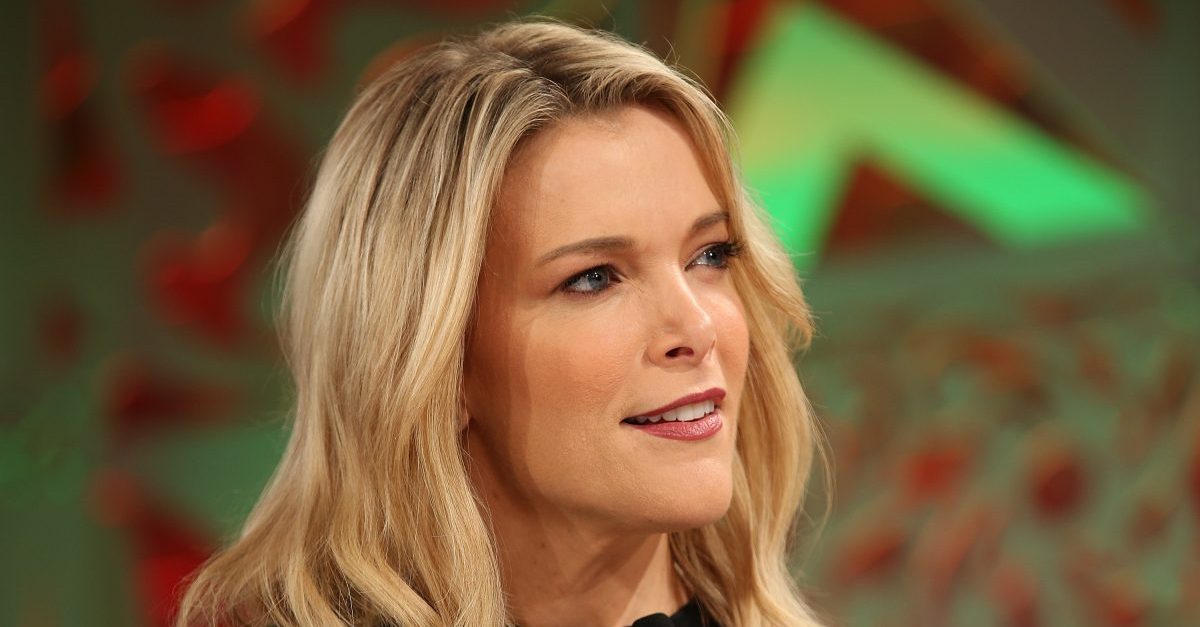
Megyn Kelly‘s attorney is reportedly going to be meeting with NBC executives on Friday, in the wake of her on-air comments about blackface and the resulting backlash. Rumors are that NBC wants to part ways with the host, but a recent report indicates that Kelly’s team has a strategy going into the meeting and it’s a pretty good one.
Kelly’s attorney Brian Friedman reportedly wants journalist Ronan Farrow in the room for Friday’s meeting. Farrow himself departed NBC News after they wouldn’t run his report on sexual assault allegations against Harvey Weinstein, and Kelly later discussed NBC’s handling of the Weinstein report on the air.
“There’s the question of the faith and confidence of the public in the reporting of NBC on matters involving itself,” Kelly said on her show back in September. “For me, as a lawyer, it’s always better if you just send it outside. And then people can have more faith in it.”
NBC reportedly wasn’t thrilled about this, so perhaps Kelly is going to claim that this is the real reason why they want her out, and “blackface-gate” is just an excuse.
Now, if the history with the Farrow report didn’t exist, NBC would likely be in the clear. According to employment lawyer and Law&Crime Network host Misty Marris, this sort of situation is likely covered by a clause in Kelly’s NBC contract.
“NBC probably has a provision in that contract that says something like if she says/does anything detrimental to the network, that would be cause to terminate the contract,” Marris said. Still, it’s likely that they would negotiate some sort of buyout, just so they don’t have to fight it out in court. “They pay her, she goes away quietly,” Marris added.
Of course, the Farrow situation does exist, which could change things significantly. Normally, firing someone because they complained about an editorial decision would be permissible, because federal and state retaliation laws are triggered by actions against protected activity, such as complaints about illegal behavior. Canning a story isn’t itself illegal, it’s a business decision. “Not running a story about harassment is different than Kelly observing/experiencing harassment or discrimination in the course of her employment at NBC, reporting it, and then being fired,” Marris noted.
New York City human rights law, however, has a much broader view of retaliation. The city law says that actions that would have a “chilling effect” on someone reporting sexual harassment are considered retaliation. Marris said that this is where Kelly and her legal team can make their best argument.
“Her lawyer could certainly argue that suppressing the conduct of Weinstein did just that,” Marris said, “and if I were the attorney, I would reference the Matt Lauer issue to further emphasize that NBC, until they were caught red handed, tried to not only deter but ignore claims of systematic sexual harassment and assault. Great leverage point for a negotiation.”
The nature of Farrow’s reporting, taken in conjunction with NBC’s own recent sexual harassment scandal, puts this argument in play for Kelly. She’ll still likely reach some sort of settlement, but it may be for a higher amount than NBC would like.
[Image via Phillip Faraone/Getty Images for Fortune]